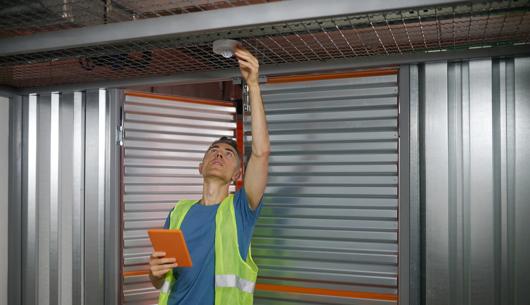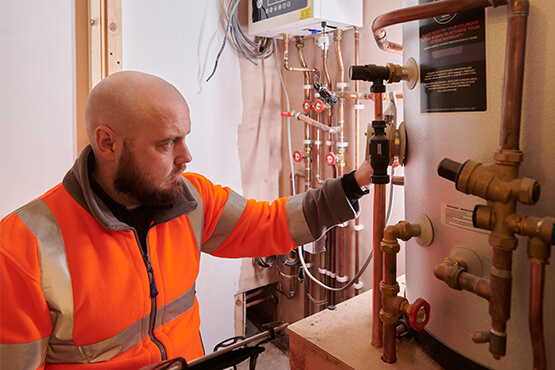380+ C-suite leaders from £100m+ businesses across the manufacturing, real estate and construction, retail and supply chain, technology, and energy and infrastructure sectors share their optimistic outlook for M&A inward investment deals in the coming year.
As inbound investment patterns shift, the UK's regions and Ireland's strategic position as a gateway to the EU are attracting growing attention. With investors increasingly moving beyond London-centric strategies, the next 12 months are set to redefine the geographical landscape of M&A.
This section explores the regions within the UK and Ireland most likely to attract investment and identifies the primary global sources driving these capital flows.
A shift beyond the capital
Since the new UK Government took office in July 2024, international investors showed increased optimism about its foreign direct investment (FDI) strategies when asked in February 2025. One UK respondent expressed this sentiment, noting that "the new UK Government's focus on inward investment has significantly boosted confidence."
56% of respondents echoed this belief that the new government has positively impacted inward investment confidence. The International Investment Summit, which took place last September, announced a record-breaking £63bn investment commitment to regenerating the UK across sectors including planning, AI, data centres, real estate, transportation, infrastructure, and green energy.
The Northern Powerhouse initiative – launched under previous governments to boost northern England – is seeing renewed focus under Labour, albeit with a different approach. Chancellor Rachel Reeves has emphasised "good jobs and productivity growth in every part of the country," framing regional development as a top mission. In late 2024, she pledged more powers for regional mayors to drive local economic growth and innovation, marking a shift from the more centralised "levelling up" agenda of the prior Conservative government.
For example, Reeves announced that city-region mayors will form strategic partnerships with national investment bodies to tailor growth plans to local needs. This contrasts with earlier approaches that northern leaders criticised as one-size-fits-all or too London-centric. Labour's strategy involves devolving authority and revising funding rules, and Reeves even promised to review the Treasury's 'Green Book' (cost-benefit guidelines) which northern officials argue had undervalued projects in the North. The aim is to ensure appraisal methods and investment decisions better reflect regional needs outside the Southeast.
The previous UK Government made ambitious promises regarding investment projects, but as of December 2024, FOI requests revealed only a quarter of the allocated funds were spent before the current government assumed power. Labour's Oxford–Cambridge Growth Corridor plans are a centrepiece of its investment strategy, highlighting a focus on high-growth clusters. Reeves unveiled an ambitious package to develop this 'golden triangle' region, touting it as potentially "Europe's Silicon Valley".
Key measures include backing major science and tech infrastructure: funding East–West Rail links between Oxford and Cambridge, thousands of new homes, and even new rail stations to improve connectivity. The corridor's world-class universities and industries in life sciences, AI, and manufacturing are seen as national assets to unlock.
Labour's regional focus has prompted mixed reactions. Northern politicians have voiced concern that the new government's big-ticket projects skew towards the South. After Reeves' January 2025 growth speech, some northern MPs warned of a "brain drain" – fearing skilled workers will flock to massive southern schemes, leaving northern projects short-handed.
Given the continued need for additional investment, it is unsurprising that 42% of respondents indicated that their businesses are likely to invest in the UK outside of London within the next year. More specifically, around 70% of respondents in regions such as UK North East (68%), UK North West (59%), and Northern Ireland (57%), stated they believe their companies will invest outside of London. Only 27% of respondents indicated that their companies would invest in London in the next 12 months.
If we do see greater investment in the Northern regions of the UK, it will lead to increased demand for services related to regional expansion, commercial contracts, and the establishment of new ventures in regional hubs.
Regional expansion means the need for more transportation, and despite recent scepticism surrounding the state of the UK's rail system (and continued controversy over HS2) successful projects such as the Crossrail project demonstrate that continued investment in rail infrastructure remains vital to stimulate growth. Investments in transportation and rail systems have far-reaching effects on regional economies and access to labour markets, which will likely be a continued trend.
Contents
- Investing in the UK and Ireland
- Inward investment in the UK and Ireland in 2025: The big picture
- 1. The big picture: Expectations for inward investment and inbound M&A in 2025
- 2. Challenges and risks: Barriers to inbound M&A in the UK and Ireland
- 4. Ireland: The gateway to Europe expects upward trend to continue with increased M&A in 2025
- 5. Shaping the future: The impact of AI and access to IP on the inward investment and inbound M&A
- M&A spotlights
- Conclusion: Inward investment in the UK and Ireland in 2025
Contact

Sandra Wong
Partner
sandra.wong@brownejacobson.com
+44 (0)330 045 1249










































